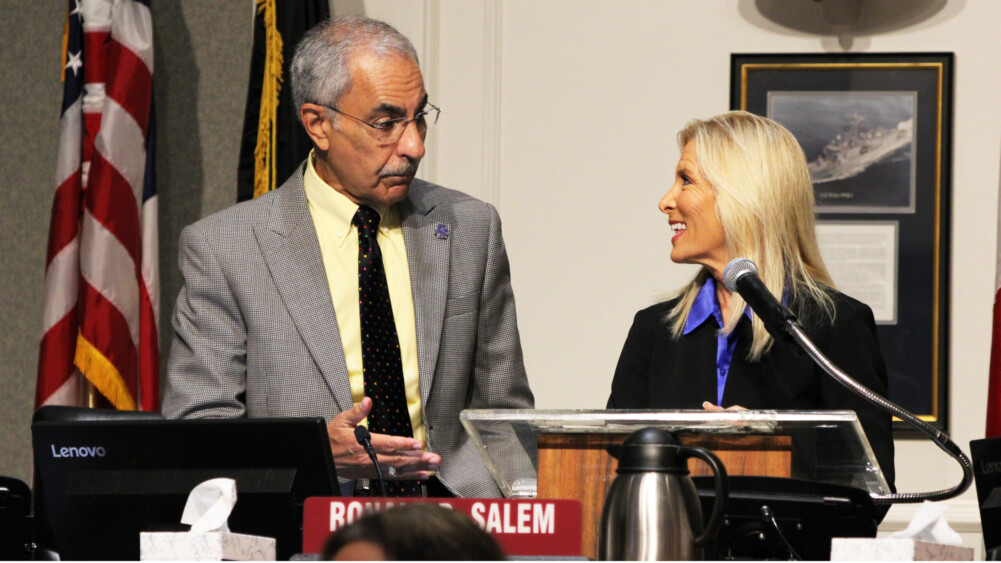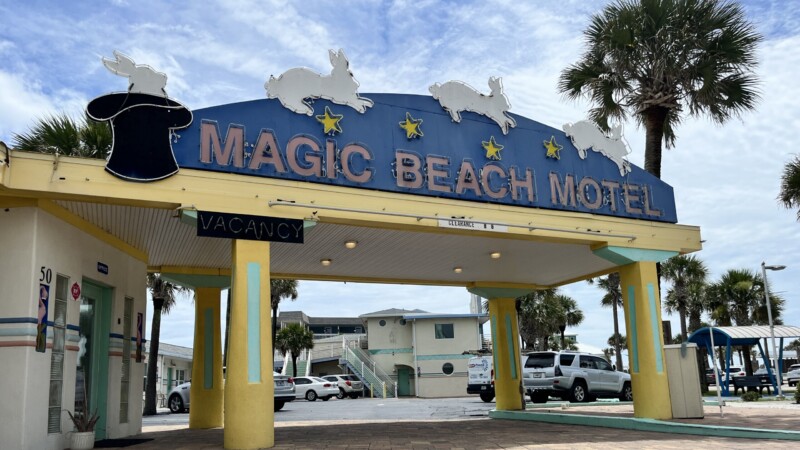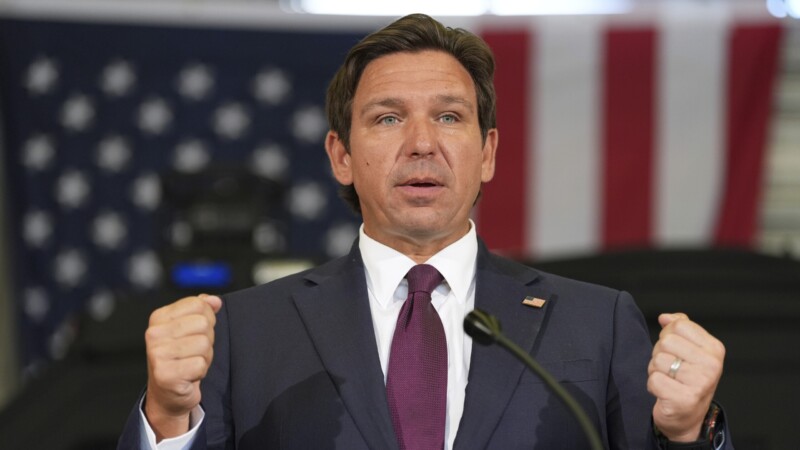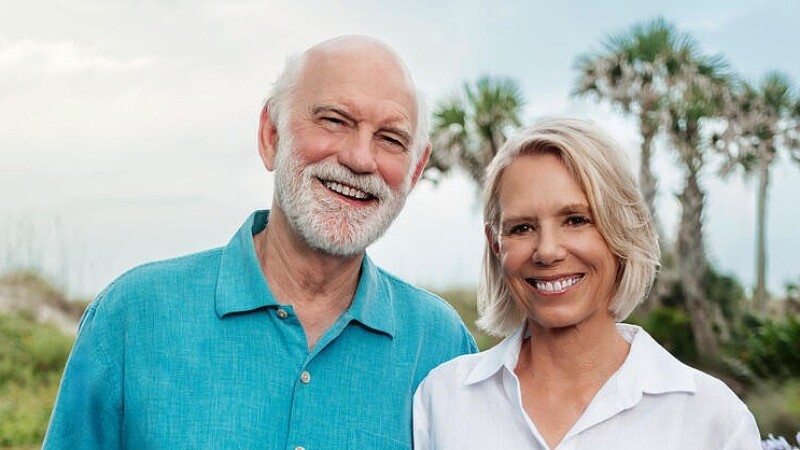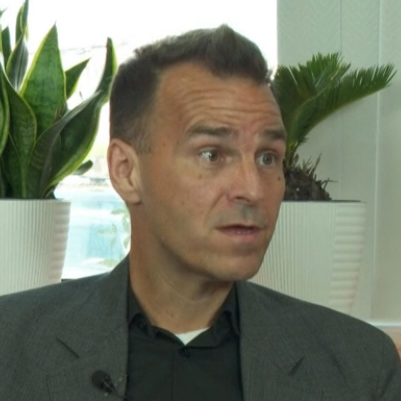
Jacksonville Mayor Donna Deegan had an audacious first year. The Democrat accomplished a great deal, particularly given dealing with a supermajority GOP legislative branch.
She shepherded a $775 million city commitment on the stadium through City Council, has teed up a potential labor and pension deal with police and fire unions, and has a new jail in mind, as her administration clearly has decided to rip the bandages off various festering sores on the city landscape and fund potential solutions.
So what does the second year’s budget, which will be introduced Monday morning, look like?
We know the Capital Improvement Plan is proposed to be just north of $430 million, per the the Times-Union. The “lean” budget will reflect a downturn in city revenues compared to projections and the end of pandemic subsidies from the federal government — a wind that lifted the sails of the previous mayor’s administration — yet the plan will include $46 million for solid waste, more than $11 million for stormwater improvement projects and $36 million for parks.
Deegan spokesperson Melissa Ross gave us some supplementary detail: “There are no hiring freezes or across the board cuts planned. At the same time, we are investing in people, processes and technology to drive efficiencies. We have chosen investments that will provide the largest ROI for the City.”
City Council members eagerly await the document, including President Randy White and his Finance Chair Ron Salem, whose committee will do much of the heavy lifting on Deegan’s proposal next month in hearings.
Regarding the plan to move police and fire into the Florida Retirement System, White notes — as does the administration — that it wouldn’t have an effect until 2027.
But White, a lifer with the Fire Department, also notes that the ultimate impact of FRS on recruitment is unknown, given that a certain and currently unknowable amount of employees — particularly younger ones — like the 401K-style plan they are on now, given the favorable investment climate.
Finance Chair Salem, who just wrapped up his term as City Council president, notes he has been in the dark also when it comes to this budget — a contrast to how things worked under the Lenny Curry administration, when Salem was briefed ahead of the proposal’s formal introduction.
“I’ve always felt like it was good to bring the leadership into the process and so they’re aware of what you’re going to present. But they have chosen not to do that,” said Salem, who drew a contrast between the relative secrecy of the spending plan and the aggressive collaboration between the mayor and him in getting the stadium deal across the finish line this year.
The Deegan administration had a different take on whether the administration needs to talk over its budget proposal with leadership.
“Council members have not traditionally been briefed on the budget before the mayor’s address,” Melissa Ross countered.
That said, Salem has some idea of what to expect going into Monday: No audacious spending proposals.
“I think it’s gonna be a fairly flat budget, and as I understand it, various departments have been scrutinized in terms of any increases within the budget. So obviously revenue to the city as compared to last year is significantly lower, and they’re having to make some tough choices on what’s in the budget,” Salem said.
Salem also questions the bookkeeping mechanism of cutting projects in the outyears of the Capital Improvement Plan, contending “the rating agencies did not recognize anything that was beyond five years, so it wasn’t like it affected our bonding capacity.”
Beyond that, Salem is more concerned about the long-range impact of fixed commitments made and proposed by the administration and wants to hone in on the larger impacts of the mayoral agenda.
“I’m going to take this budget and set up working with our auditors and I’m going to be looking at the FY ‘25-26 budget and the ‘26-27 budget in terms of estimating revenue because we have a lot of expenses that we have pushed out into those outer years,” he said, including proposed raises for police and fire employees, the pension reform proposal that would put them into the Florida Retirement System, and the Community Benefits Agreement that was severed from the stadium agreement and awaits debate.
“I want my colleagues to understand what she is proposing in the out years,” he added. “We’ve got to understand if you approve all this stuff, then you don’t have a whole lot of choice. I will make it very clear through the budget process of what our obligations are in this budget and what they are in the ‘25-26 and ‘26-27 budgets, which is the last budget that I’ll be involved in.”
“As I’ve said, we do not have a money tree and we need to be prudent as we look forward, particularly as the revenue that we’re getting in from property taxes, it appears to be flat or not going up as it has in the past,” Salem continued.
Salem also addressed the possibility of leasing a new jail, which is something that Deegan floated for future years, noting that it’s not an idea without precedent.
“There are jails built across the country that are built by someone else and it’s leased back to the provider. And your payment is like a mortgage payment (funded) out of general revenue dollars,” Salem said. “My understanding is you pay more for the jail long term, but you don’t have to borrow all the money upfront to build it. So there’s advantages and disadvantages both ways.”
Councilman Nick Howland was traveling back from Europe when we contacted him, but the Finance Committee member has some defined expectations for the Deegan document.
“The mayor’s proposed budget is just that — a proposed budget. It is the City Council’s responsibility to review, amend, and approve the final budget for Jacksonville. We do so in September. This city has significant projects on the horizon with sizable financial costs, and it’s very difficult to predict our future revenue collections. I would like to see a final budget that stays true to the role of local government: public safety, infrastructure, economic development, and other vital quality-of-life services. Surplus revenues should go to emergency reserves or to pay down debt.”
Meanwhile, another council member says he’s a no — no matter what the mayor rolls out.
“There has been absolutely no effort by the Deegan administration to be honest about our terrible financial condition. She has spent more money in one year than any mayor in our history, even accounting for inflation,” says Rory Diamond.
He believes, “Deegan’s spending streak guarantees that everyone’s property taxes are going to be drastically increased over the next 10 years.”
Diamond goes on to question his colleagues. “I will vote against it. I’ll vote against the new spending. But, there isn’t the will on council to make the cuts necessary, and Deegan’s team won’t propose any real cuts. It’s all a game to them to get re-elected and hand the bill to the next mayor.”
Deegan’s office spokesperson Ross says it’s “premature to assume that any fiscal decisions made today will have a negative impact on a mayor in 2031” and that the administration is “not proposing a tax increase.”
Meanwhile, others like Council Vice President Kevin Carrico are taking a more wait-and-see attitude.
“I have not met with anybody from the mayor’s office concerning next year’s budget, I know it will be hard because there are a lot of priorities and revenue is short of what we’d all hoped. I will be tuned into the Finance Committee budget hearings and have faith in that committee to make good fiscal sense of it all.”
After this column’s publication, Deegan spokesperson Melissa Ross responded to the council members’ statements further:
“The mayor and her staff have met regularly with Past President Salem and new President White to discuss administration priorities and how they align with Council leadership. Also, credit agencies do consider the entire CIP as part of their ratings analysis, and we collaborated closely with Councilman Howland on the CIP cleanup project under Councilman Salem’s direction. The MBRC has also met dozens of times publicly. The mayor looks forward to working with President White and the rest of the Council on crafting a budget that works for everyone.”



